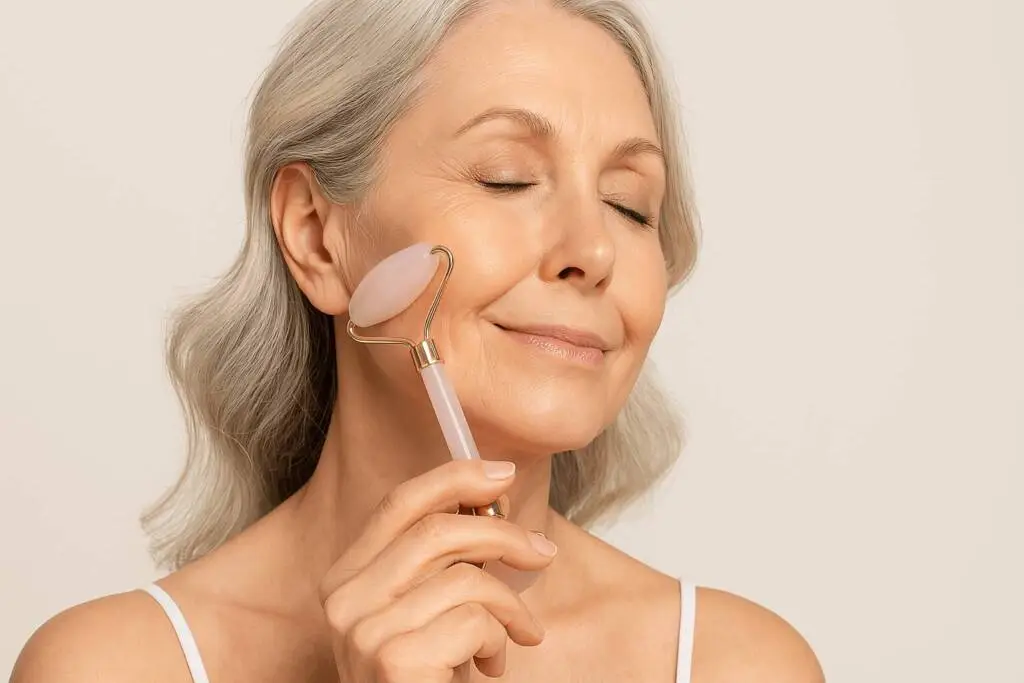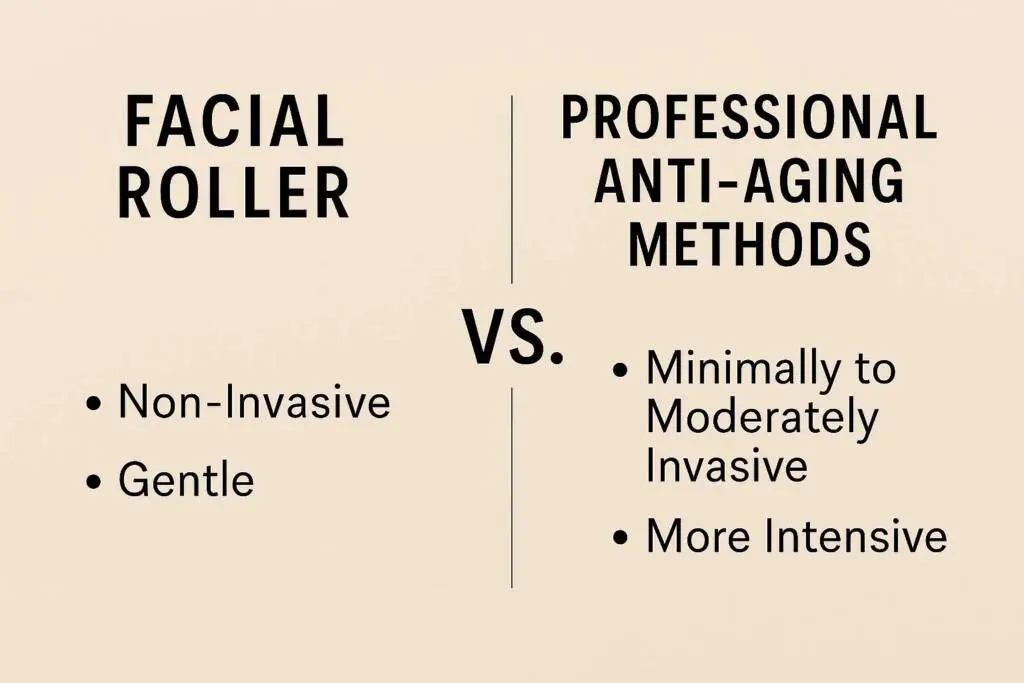
In today’s rapidly expanding beauty market, facial roller, with their simplicity, naturalness, and low-irritation properties, have become a daily ritual for many skincare enthusiasts. Whether touted as a “morning de-puffing tool” on social media or as a “firming and contouring tool” by celebrity bloggers, facial rollers have earned a reputation as the “new anti-aging darling.”
But this raises the question: Can facial rollers truly fight aging? Is it a scientifically effective skincare method, or just a psychological comfort? Today, we’ll delve into the principles, research, and practical applications of facial rollers.
1. Why is the Facial Roller Called An “Anti-Aging” Tool?
First, let’s examine why facial rollers are often considered “anti-aging.” Mainstream beauty theory suggests their primary anti-aging mechanisms include:
- Boosting blood circulation: The physical act of rolling stimulates microcirculation in the face, resulting in a more rosy and radiant appearance.
- Accelerating lymphatic drainage: Helps remove excess water and toxins from the face, reducing puffiness and dullness.
- Relaxing muscle tension: Relaxes facial muscles, alleviating fine lines caused by prolonged tension.
- Enhancing skincare product absorption: Using with serums or creams increases penetration and enhances effectiveness.
- Providing an instant lifting effect: The rolling process gently stretches the skin, creating a visually “tightening” effect.
At first glance, it might seem comprehensive, but are these effects short-term or long-term? Let’s examine the scientific evidence.
2. What does Science Say? Support & Skepticism Coexist.
Research Support:
- A 2021 study published in the Journal of Cosmetic Dermatology found that after four weeks of using a facial roller, participants subjectively perceived firmer skin, more defined contours, and reduced facial puffiness.
- Some dermatologists suggest that rollers can improve skin surface temperature and local blood flow, resulting in a temporary sense of rejuvenation.
Scientific Criticism:
- However, most studies also indicate that rollers cannot penetrate the dermis and therefore cannot directly stimulate collagen production, meaning they cannot fundamentally reverse the aging process.
- Truly effective anti-aging mechanisms (such as collagen regeneration and elastin repair) typically require more intense stimulation methods, such as radiofrequency, microneedling, and medical phototherapy.
- The “firming” sensation caused by rollers is mostly temporary and occurs on the surface of the skin, disappearing after discontinuation of use.
Conclusion: While rollers can indeed help improve skin tone and reduce puffiness, their “anti-aging” effects are primarily visual and psychological, and do not possess a medically proven anti-aging effect.
3. Facial Roller vs. Professional Anti-Aging Methods: What’s the Difference?

To give us a clearer understanding of the roller’s true role, let’s briefly compare it with mainstream medical aesthetics and anti-aging projects:
| Treatment | Targeted Skin Layer | Time to See Results | Duration | Cost |
|---|---|---|---|---|
| Face Roller | Epidermis + Superficial Blood Circulation | Immediate visible effect | Requires ongoing use | Low |
| Ultrasound (Ultherapy) / Thermage | Dermis | 1–3 months | 6–12 months | High |
| Hyaluronic Acid / Botox Injections | Dermis + Muscle Layer | Immediate | Several months | Medium–High |
| Microneedling + Collagen Therapy | Dermis | After multiple sessions | Several months | Medium |
As can be seen from the table, facial rollers are more suitable as a “plus item” in daily maintenance rather than replacing core anti-aging methods.
4. Correct Use of Roller = Maximum Effect
While facial rollers can’t rejuvenate, they can still be a gentle yet effective addition to your skincare routine if used properly. Here are a few tips:
Use the right combination with your skincare products.
- Using a serum containing anti-aging ingredients (such as retinol, niacinamide, and peptides) with your roller can enhance penetration.
- It’s recommended to use it after your evening skincare routine to aid absorption.
Use the roller regularly.
- Use it 2–4 times per week for 5–10 minutes each time.
- Avoid excessive pressure and follow the lymphatic system, rolling in a consistent direction.
Clean and disinfect thoroughly.
- Immediately after use, cleanse with warm water and mild soap, and disinfect regularly with alcohol to prevent bacterial growth.
Not recommended for the following:
- Open wounds, acne, or allergic skin
- Extremely dry skin or skin with excessive barrier damage
If you’re hoping to completely eliminate nasolabial folds, enhance facial contours, or rebuild collagen with a facial roller—you might be disappointed. But if you’re looking to incorporate a gentle, relaxing, and effective ritual into your daily skincare routine, a facial roller is a worthwhile investment.
It’s more of a supplemental aid in the anti-aging journey; it can’t be a complete standalone solution, but it can enhance your overall skincare experience and, to a certain extent, delay the onset of early signs of aging.

